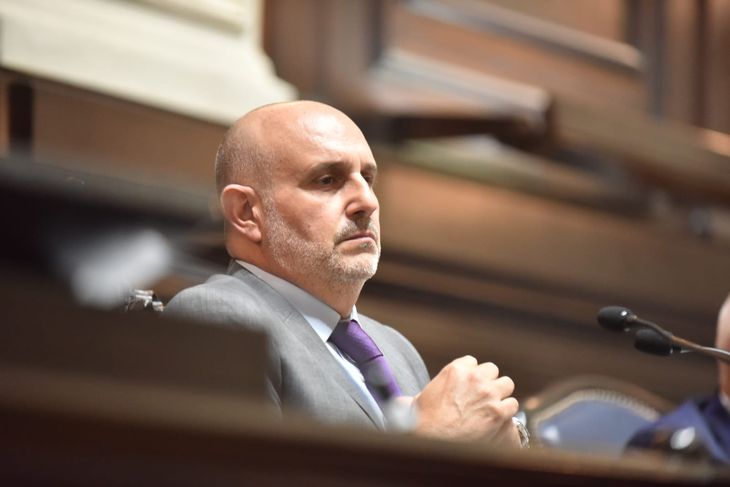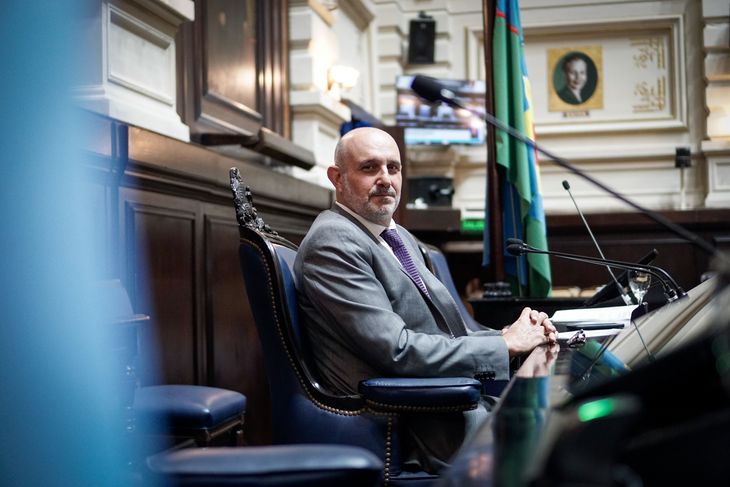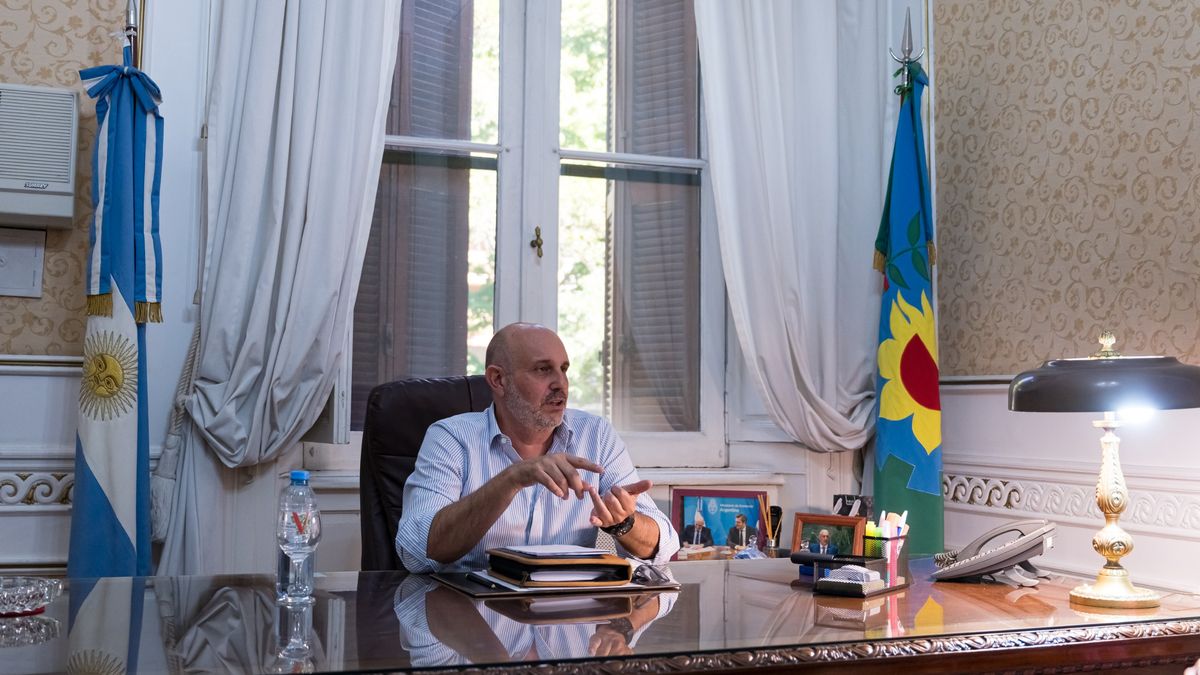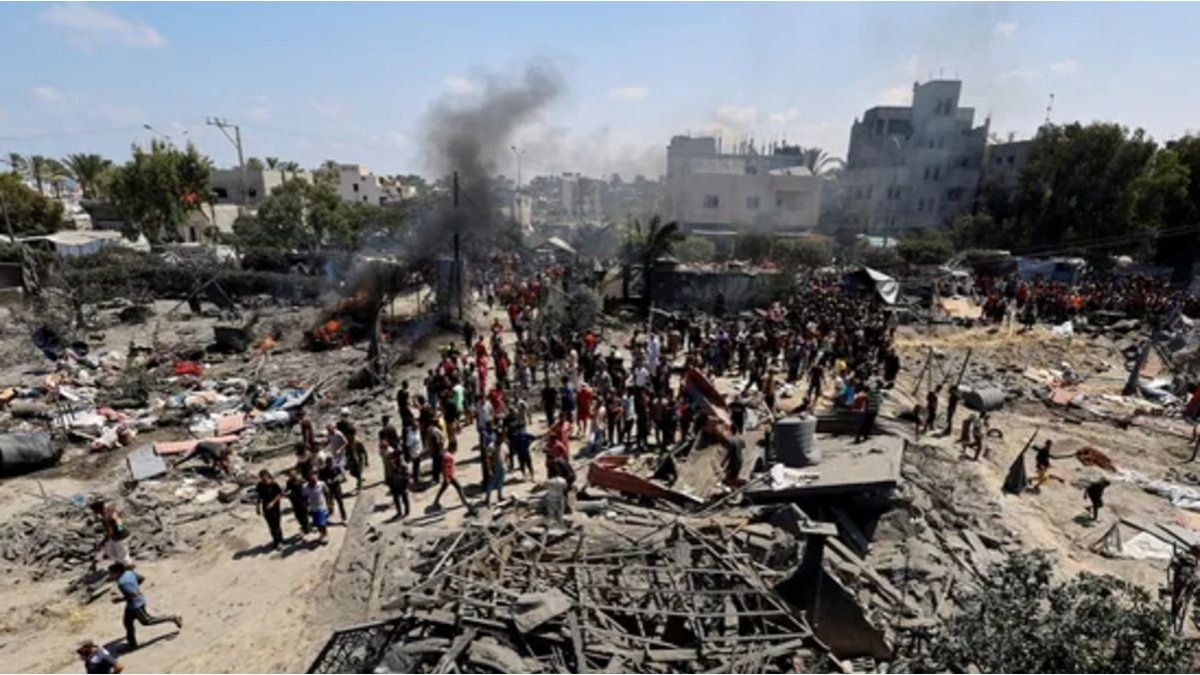Journalist: Are negotiations going to resume this week?
Alexis Guerrera: We are looking at the round of meetings that we had planned for the week. It is key to consider that national revenue fell by 8%, which has a serious impact on the province of Buenos Aires. The government is recalculating everything with the extension of the budget, which includes working with ARBA in the issuance of the ballots with the extended Tax Law. The budget is also being reformulated for March, when debts come due and there will be no debt available. The next few hours will be decisive to determine if we can start negotiations on Tuesday or if we need more time to clarify the situation. We have to see if that budget, that Tax Law and that debt are still needed.. The province needs 30 days once it has the Tax Law to be able to issue tax collections and introduce the new parameters into the system. We will see if we can open negotiations or if we need more time..
Q: Who will be invited to participate in that table?
AG: The call for the 7th was from the PRO, UCR+Cambio Federal and Civic Coalition interblock. For Wednesday, we were organizing the meeting with the Civic Agreement-UCR-GEN and with the Unión Renovación y Fe bloc.
Q: Why could they reach an agreement if consensus was not achieved in the session on the 27th?
AG: Because in politics nothing is ever finished until it is finished. Maybe there was a lack of time, dialogue, understanding. This new meeting attempts to resolve these questions, beyond specific requests: funds for municipalities, percentage of the debt that will go to the districts, charges extended by decree, charges by the Court yes or no, and debt. There are 4 or 5 topics on which, if we can agree, we can move forward.
Alexis Guerrera, Teresa García and Facundo Tignanelli.jpg
Press conference of the UxP benches after the non-sanction of the Buenos Aires Budget
Q: Should that discussion include vacant appointments to the Court?
AG: I do not believe that the framework of the budget debate is the appropriate time or context to discuss this. It is not the scope. It is a more complex procedure. The province needs to fill and define those 4 vacancies, we are all in agreement. This is a year we should figure it out. But who occupies which place is a conversation that should be separate from the budget discussion.
Q: And can the end of the limit on indefinite reelections be discussed now?
AG: It is a topic that could end up being on the table. I don’t know what the final result of that issue is.
Q: Is the Renovador Front still against reinstating indefinite elections, or depending on the needs for the approval of these laws, could it revise its position?
AG: Massism, if there are enough people to treat it, will not be an obstacle to its treatment, nor a stone in the way.
Q: In the negotiations with the Executive, a fund for the municipalities was agreed upon. Is the percentage of the debt that will be allocated to the communes still to be unlocked?
AG: 160 billion tied to the budget were closed. The percentage of debt for municipalities was left without resolution. An issue requested by the opposition was also not resolved so that all positions that were extended by decree expire on March 31, which required new proposals and appointments. Progress was made in a scheme of registrations for cancellations, but there were two places – Accounting and Treasury – on which there was no agreement. Some issues in that area needed to be refined.
Q: Would greater cohesion of the Peronist bloc have favored the sanction of the regulations?
AG: There were 37 seated queues and 37 pairs of hands ready to be raised. Beyond the political situation, let’s analyze the mathematics in the House. Unión por la Patria has 37 deputies out of 92. We reached agreements with the Civic Agreement-UCR-GEN block and Unión Renovación y Fe, with part of the PRO interblock, UCR-Cambio Federal and Civic Coalition to have a Budget and Fiscal. Fundamentally two thirds of that interblock were missing. That’s when the negotiation began to become more complex. The governor understood that it was of no use to have a Budget and a Fiscal Law without the debt. It ended up being a fictitious budget.
Q: Do you trust that progress can be made?
AG: We are in a key day. We trust that progress can be made. The Executive is recalculating whether it will arrive on Tuesday with a coherent proposal based on the new scenario. Provincial taxes are being settled based on the extension of the Tax Law and the budget is being redrawn based on the extension. And there is a macro context, where the income that the budget calculated would come from the national government changed. There is a big question mark. Perhaps, by Tuesday this reorganization of the provincial Executive will not be finished and we will have to postpone the meeting. The Executive cannot come without having a comprehensive and precise scenario of what is happening.
Alexis Guerrera.jpg

Unfold, internal PJ and objectives
Guerrera, 53, is a teacher. He was a councilor, mayor of General Pinto for four terms and Buenos Aires deputy. He was also president of Trenes Argentinos and served as national Minister of Transportation during the government of Alberto Fernández. He is also the first openly homosexual president of the Chamber of Deputies.
Q: Why, in your inauguration speech as head of the Corps, did you explain that sometimes “freedoms are conditioned and out there someone shoots ‘he who moves is gay’. I’m going to keep moving, that’s not going to limit me, that’s not going to condition me”?
AG: The previous days there had been certain homophobic harangues. I said that Deputies is the house of the people, of dialogue, of consensus and that, if they wanted me to stay still, I was not going to do it. I claim that it was never an obstacle in my career. In my town, where those who know me best are, 82% of the voters voted for me. The sexual condition does not limit the human or political condition.
Q: What dynamics do you propose to give to the Chamber taking into account that it will be an electoral year and it generally becomes more difficult to meet?
AG: Let the commissions continue working, like last year, they worked very well. In electoral years, from mid-year onwards, the intensity of the sessions drops. But we are going to try to maintain the pace, dealing with the laws that the Executive needs. A year with a Budget, Tax Law and debt is not the same as without those tools that regulate governance. It is likely that the governor will need other tools if he does not have those three. That will be the priority and, secondly, continue addressing the proposals that come from the legislators of our house, and those that come from the Senate.
Q: What is the position of massismo regarding the electoral split in the province?
AG: It is too much to talk about the position of massism. The change at the national level, with the single paper ballot (BUP), brought a new scenario to the province that is still being analyzed today. I think that the experiences of splitting elections in several provinces were not good. There are several experiences where the provincial election was separated from the national one, believing that they would do better and that was not the case. I think the governor is waiting to know what happens with the PASO at the national level – whether they are eliminated or not – to know what to do here. If we preserve our election system, with the ballot in strip, for a matter of logistics, organization of the provincial electoral justice and the electoral board, it is likely that the concurrent election will be much more tidy and without difficulties: on the same day single paper ballot and traditional ballot, in two ballot boxes. But it is not the opinion of the Renewal Front, but mine. Today, with what we have at hand, perhaps the ideal is concurrent.
Q: What is your relationship with Governor Kicillof like?
AG: It’s good. We have talked a lot these days and in the days before the failed session. It is a cordial, respectful bond and one of mutual listening. that we built since I was mayor and the nation’s Minister of Economy.
Q: What reading do you make of the internal nature of Peronism and what role does massism play there?
AG: I think we are always building bridges. The three large spaces that make up UxP are not within reach, as a sector of the press wants to show. There are differences, but we are not in the trenches waiting to see who shows up to shoot him. These differences are being resolved from the highest levels of reference. These are differences that can be resolved.
Q: Can Justicialism overcome its internal problems and beat LLA in this year’s elections?
AG: Yes, we have to do everything necessary to get to the elections together. 6 or 7 months left. Do you know all the things that can happen? December collection fell 8% because the program is spectacular for financial speculation, but not for the real economy. When Argentine bonds start to fail, the money goes away. Nor is the supposed credit that the IMF is going to give the Government so that the economy improves. We already saw it. They gave Mauricio Macri a loan, he won the midterm election and then the economy collapsed and he was unable to re-elect. Six months in Argentina is 2 years anywhere else.
Alexis Guerrera, president of the Buenos Aires Chamber of Deputies.jpg

Press Buenos Aires Chamber of Deputies
Q: How do you analyze the funding cuts to the province carried out by Javier Milei’s government?
AG: Negatively. The province is not Governor Kicillof. But its 17 million inhabitants. It is 60% of GDP, 50% of industry and the same amount of agricultural and livestock exports. Buenos Aires is the most important province of Argentina. They withdrew our security fund, the teaching incentive, and transportation resources. Let me clarify: they are not “discretionary” funds, as the national government says, but rather funds that were dictated by law. Disregarding the laws and violating them unilaterally, they were canceled. What did the governor do? It did not withdraw security funds, resources for teachers or money for transportation in the interior, but instead compensated for this lack of the national government with its own resources. Milei proudly reduced public spending – which is security, education, transportation – and used those funds to pay debt, saying that this served to avoid issuing, which it did not do.
Source: Ambito
David William is a talented author who has made a name for himself in the world of writing. He is a professional author who writes on a wide range of topics, from general interest to opinion news. David is currently working as a writer at 24 hours worlds where he brings his unique perspective and in-depth research to his articles, making them both informative and engaging.




